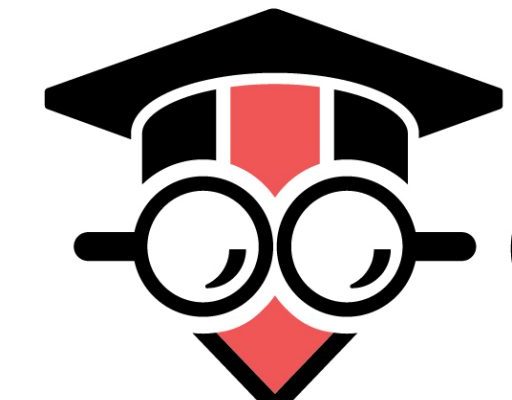Introduction to Degree Programs

: Understanding the Foundation of Higher Education
In today's rapidly evolving job market, obtaining a degree has become more important than ever. As industries become increasingly specialized and competitive, the need for formal education continues to rise. Degree programs serve as a critical pathway for individuals seeking to enhance their knowledge, skills, and employability. This article will explore the various types of degree programs available, their significance in personal and professional development, and key factors to consider when choosing a degree program.
The Importance of Degree Programs: Building a Strong Educational Foundation
Degree programs provide students with a structured learning environment where they can acquire essential knowledge and skills in a specific field. These programs not only equip individuals with academic credentials but also foster critical thinking, problem-solving abilities, and practical experience. Employers often prioritize candidates with degrees, as they demonstrate commitment, perseverance, and a certain level of expertise.
Degree programs also play a significant role in personal development. Pursuing higher education can lead to increased self-awareness, improved communication skills, and a broader understanding of diverse perspectives. Furthermore, the experience of attending college or university helps students build a network of contacts that can be invaluable throughout their careers.
Types of Degree Programs: An Overview of Educational Options
There are several types of degree programs available, each catering to different academic and professional goals. Understanding these options is essential for prospective students.
Associate Degree: A Stepping Stone to Further Education
An associate degree typically requires two years of study and serves as an entry-level qualification for many careers. It can also be a stepping stone to a bachelor's degree, as many colleges and universities accept transfer credits from associate degree programs. Common fields of study include liberal arts, business, and healthcare.
Bachelor's Degree: The Standard for Many Professions
A bachelor's degree is the most common undergraduate degree and usually requires four years of study. It provides students with a comprehensive education in their chosen field and is often a prerequisite for many professional careers. Bachelor’s programs may be offered in various disciplines, including sciences, humanities, engineering, and business.
Master's Degree: Specialization and Advanced Knowledge
A master’s degree typically requires one to two years of study beyond a bachelor’s degree. This advanced degree allows individuals to specialize in a particular area and develop a deeper understanding of their field. Many professions, such as teaching, counseling, and healthcare, may require a master’s degree for career advancement.
Doctoral Degree: The Pinnacle of Academic Achievement
A doctoral degree, or Ph.D., represents the highest level of academic achievement. This program usually requires several years of study and original research. Doctoral candidates must complete a dissertation that contributes new knowledge to their field. Doctorates are often pursued by individuals seeking careers in academia, research, or specialized professional roles.
Online Degree Programs: Flexibility and Accessibility
In recent years, online degree programs have gained popularity as they offer flexibility for students who may be balancing work, family, or other commitments. Many accredited institutions now provide online options for associate, bachelor's, master’s, and even doctoral degrees. Online programs allow students to learn at their own pace and access materials from anywhere in the world.
Factors to Consider When Choosing a Degree Program: Making an Informed Decision
Selecting the right degree program is a crucial decision that can significantly impact an individual's career trajectory. Here are several factors to consider:
Interests and Career Goals: Aligning Education with Passion
Before choosing a degree program, individuals should reflect on their interests and career aspirations. Identifying personal strengths and passions can help narrow down potential fields of study. Researching job prospects and industry trends can also provide insight into which programs may lead to fulfilling career opportunities.
Program Accreditation: Ensuring Quality Education
It is essential to choose a degree program that is accredited by a recognized accrediting body. Accreditation ensures that the program meets specific educational standards and that the degree will be recognized by employers and other educational institutions. Prospective students should verify the accreditation status of any institution they are considering.
Cost and Financial Aid: Evaluating Affordability
The cost of pursuing a degree can vary significantly depending on the institution, program, and location. Students should consider tuition fees, additional expenses, and potential financial aid options. Scholarships, grants, and student loans can help alleviate the financial burden of higher education.
Flexibility and Learning Style: Finding the Right Fit
Different degree programs may offer varying levels of flexibility in terms of class schedules, course formats, and learning environments. Prospective students should consider their preferred learning style—whether they thrive in traditional classroom settings or prefer online learning—and choose a program that aligns with their needs.
Conclusion: The Path to Personal and Professional Growth
Degree programs serve as a vital foundation for individuals seeking to advance their education and career prospects. By understanding the various types of programs available and considering key factors in their selection, prospective students can make informed decisions that align with their personal and professional goals. In an increasingly competitive job market, obtaining a degree can open doors to new opportunities, enhance skills, and contribute to lifelong personal development. As the landscape of education continues to evolve, the pursuit of a degree remains a significant investment in one’s future.Introduction to Degree Programs: Understanding the Foundation of Higher Education
In today's rapidly evolving job market, obtaining a degree has become more important than ever. As industries become increasingly specialized and competitive, the need for formal education continues to rise. Degree programs serve as a critical pathway for individuals seeking to enhance their knowledge, skills, and employability. This article will explore the various types of degree programs available, their significance in personal and professional development, and key factors to consider when choosing a degree program.
The Importance of Degree Programs: Building a Strong Educational Foundation
Degree programs provide students with a structured learning environment where they can acquire essential knowledge and skills in a specific field. These programs not only equip individuals with academic credentials but also foster critical thinking, problem-solving abilities, and practical experience. Employers often prioritize candidates with degrees, as they demonstrate commitment, perseverance, and a certain level of expertise.
Degree programs also play a significant role in personal development. Pursuing higher education can lead to increased self-awareness, improved communication skills, and a broader understanding of diverse perspectives. Furthermore, the experience of attending college or university helps students build a network of contacts that can be invaluable throughout their careers.
Types of Degree Programs: An Overview of Educational Options
There are several types of degree programs available, each catering to different academic and professional goals. Understanding these options is essential for prospective students.
Associate Degree: A Stepping Stone to Further Education
An associate degree typically requires two years of study and serves as an entry-level qualification for many careers. It can also be a stepping stone to a bachelor's degree, as many colleges and universities accept transfer credits from associate degree programs. Common fields of study include liberal arts, business, and healthcare.
Bachelor's Degree: The Standard for Many Professions
A bachelor's degree is the most common undergraduate degree and usually requires four years of study. It provides students with a comprehensive education in their chosen field and is often a prerequisite for many professional careers. Bachelor’s programs may be offered in various disciplines, including sciences, humanities, engineering, and business.
Master's Degree: Specialization and Advanced Knowledge
A master’s degree typically requires one to two years of study beyond a bachelor’s degree. This advanced degree allows individuals to specialize in a particular area and develop a deeper understanding of their field. Many professions, such as teaching, counseling, and healthcare, may require a master’s degree for career advancement.
Doctoral Degree: The Pinnacle of Academic Achievement
A doctoral degree, or Ph.D., represents the highest level of academic achievement. This program usually requires several years of study and original research. Doctoral candidates must complete a dissertation that contributes new knowledge to their field. Doctorates are often pursued by individuals seeking careers in academia, research, or specialized professional roles.
Online Degree Programs: Flexibility and Accessibility
In recent years, online degree programs have gained popularity as they offer flexibility for students who may be balancing work, family, or other commitments. Many accredited institutions now provide online options for associate, bachelor's, master’s, and even doctoral degrees. Online programs allow students to learn at their own pace and access materials from anywhere in the world.
Factors to Consider When Choosing a Degree Program: Making an Informed Decision
Selecting the right degree program is a crucial decision that can significantly impact an individual's career trajectory. Here are several factors to consider:
Interests and Career Goals: Aligning Education with Passion
Before choosing a degree program, individuals should reflect on their interests and career aspirations. Identifying personal strengths and passions can help narrow down potential fields of study. Researching job prospects and industry trends can also provide insight into which programs may lead to fulfilling career opportunities.
Program Accreditation: Ensuring Quality Education
It is essential to choose a degree program that is accredited by a recognized accrediting body. Accreditation ensures that the program meets specific educational standards and that the degree will be recognized by employers and other educational institutions. Prospective students should verify the accreditation status of any institution they are considering.
Cost and Financial Aid: Evaluating Affordability
The cost of pursuing a degree can vary significantly depending on the institution, program, and location. Students should consider tuition fees, additional expenses, and potential financial aid options. Scholarships, grants, and student loans can help alleviate the financial burden of higher education.
Flexibility and Learning Style: Finding the Right Fit
Different degree programs may offer varying levels of flexibility in terms of class schedules, course formats, and learning environments. Prospective students should consider their preferred learning style—whether they thrive in traditional classroom settings or prefer online learning—and choose a program that aligns with their needs.
The Role of Internships and Practical Experience: Bridging Theory and Practice
Incorporating internships and practical experiences into a degree program can significantly enhance a student's educational journey. Internships provide real-world exposure to the industry, allowing students to apply theoretical knowledge in practical settings. This experience not only bolsters a resume but also helps students develop essential soft skills, such as teamwork and communication. Many degree programs now require internships as part of the curriculum, recognizing their value in preparing students for post-graduation employment.
Networking Opportunities: Building Professional Connections
Engaging in degree programs often opens doors to networking opportunities. Universities and colleges frequently host career fairs, workshops, and guest lectures that allow students to connect with industry professionals. Networking is a critical component of career development, as many job openings are filled through personal connections. Building a professional network during college can lead to mentorship, job opportunities, and collaborations that can benefit students long after they graduate.
Conclusion: The Path to Personal and Professional Growth
Degree programs serve as a vital foundation for individuals seeking to advance their education and career prospects. By understanding the various types of programs available and considering key factors in their selection, prospective students can make informed decisions that align with their personal and professional goals. In an increasingly competitive job market, obtaining a degree can open doors to new opportunities, enhance skills, and contribute to lifelong personal development. As the landscape of education continues to evolve, the pursuit of a degree remains a significant investment in one’s future. The journey through higher education is not merely about acquiring knowledge; it is about transforming oneself into a capable, confident, and resourceful individual ready to tackle the challenges of the modern world.




